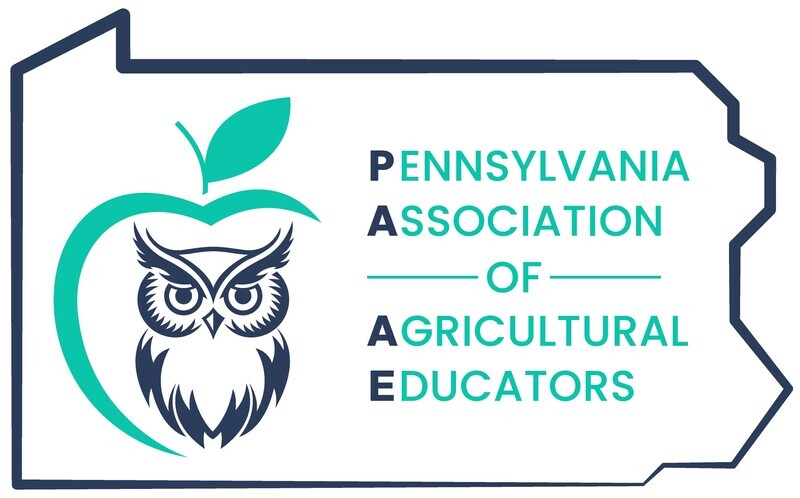Teach Ag, Future Educators
Return HomeWhat is Agriculture Education?
Agricultural education is a dynamic field that prepares students for successful careers and informed choices in the agriculture, food, and natural resource systems. It equips students with a diverse skill set rooted in science, mathematics, communications, leadership, technology, and business management.

This education model is built upon three integrated components:
-
Classroom and Laboratory Instruction – Core academic and technical content delivered in classroom and hands-on lab settings.
-
Experiential Learning – Real-world experiences that take place beyond the classroom, guided and supervised by agricultural educators. These include supervised agricultural experiences (SAEs), internships, and community-based projects.
-
Leadership Development – Opportunities to grow personal and professional skills through involvement in student-led organizations such as the National FFA Organization, National Young Farmer Educational Association, and National Postsecondary Agricultural Student Organization, among others.
Many high school agriculture programs incorporate FFA to strengthen leadership development and experiential learning. To learn more about the National FFA Organization and its role in agricultural education, visit www.ffa.org.
National Teach Ag Day - September 18, 2025
Celebrating Agricultural Educators
Join us in celebrating National Teach Ag Day on September 18, 2025—a day dedicated to promoting the profession of agricultural education and honoring the vital contributions of agriculture teachers in our schools and communities. This annual event aims to inspire the next generation of educators to consider careers in school-based agricultural education and to recognize the lasting impact current educators have on students and the future of the agriculture industry.
To learn more, visit the National Teach Ag Website.
Become an Agriculture Educator in Pennsylvania
Pick your pathway to the best career ever!
The Pennsylvania Department of Education requires the following to become certified to teach agriculture education in PA:
- Have a 3.0 GPA during undergraduate studies
- Pass a series of PAPA pre-certification teacher examinations required in PA
- Have documentation of at least 80 hours of volunteer or paid education work experience with learners of the age group the candidate plans to teach. At least 40 of these age-appropriate 80 hours must be with learners whose cultural, social, or ethnic backgrounds differ from the candidate's own.
- Complete an early field experience, with the cooperating teacher at the designated school. This is specified by the certification program.
- Complete at least 48 semester credit hours literature
- Secure a student teaching experience in the requested area of certification.
- CPR and First Aid Certification
- Background checks
- All candidates seeking initial certification must complete an application for the appropriate certificate, which does require a physical examination by a physician licensed to practice in Pennsylvania.
- Also, an application fee, made payable to the Commonwealth of Pennsylvania, is required.
Resources for Future Teachers
It Starts in the Classroom - The Journey to Becoming an Agricultural Educator
The National Association of Agricultural Educators (NAAE) is a professional organization dedicated to advancing agricultural education and supporting the professionals who make it possible. Representing agriculture teachers at all levels—from middle and high schools to postsecondary institutions—NAAE works to provide its members with advocacy, professional development, and networking opportunities.
NAAE is committed to:
-
Promoting the value and importance of agricultural education
-
Supporting high-quality teaching through resources, recognition, and training
-
Advocating for agricultural education at the local, state, and national levels
By fostering leadership, innovation, and collaboration, NAAE plays a vital role in strengthening the future of agricultural education and ensuring students are prepared for careers in the ever-evolving agriculture and natural resources industries. Whether you are a high school student, current college student, or college graduate the NAAE website has great resources and information to help you along the way.
Pennsylvania Agriculture Educators Association
The Pennsylvania Association of Agricultural Educators (PAAE) is a statewide professional organization dedicated to supporting and advancing agricultural education. By connecting educators across Pennsylvania, PAAE fosters professional growth, provides valuable resources, and advocates for the importance of agriculture in today’s classrooms. The organization plays a key role in ensuring that agricultural educators are equipped to inspire the next generation of leaders in agriculture, food, and natural resources.
PAAE's core objectives include:
-
Professional Development and Recognition: Offering opportunities for educators to enhance their skills and acknowledging outstanding contributions in agricultural education.
-
Recruitment and Retention: Implementing programs aimed at attracting new educators to the profession and supporting current educators through professional, social, and recreational initiatives.
-
Advocacy: Serving as a legislative advocate for agricultural education, promoting its significance and needs at local, state, and national levels.
-
Collaboration: Working closely with postsecondary institutions to articulate agricultural courses and maintaining valuable relationships with other professional organizations and agencies.
-
Community Building: Enhancing the general welfare of its members through fellowship and cooperative activities.
-
Support of National Initiatives: Aligning with and supporting the aims and purposes of the National Association of Agricultural Educators (NAAE).

The Pennsylvania State University






